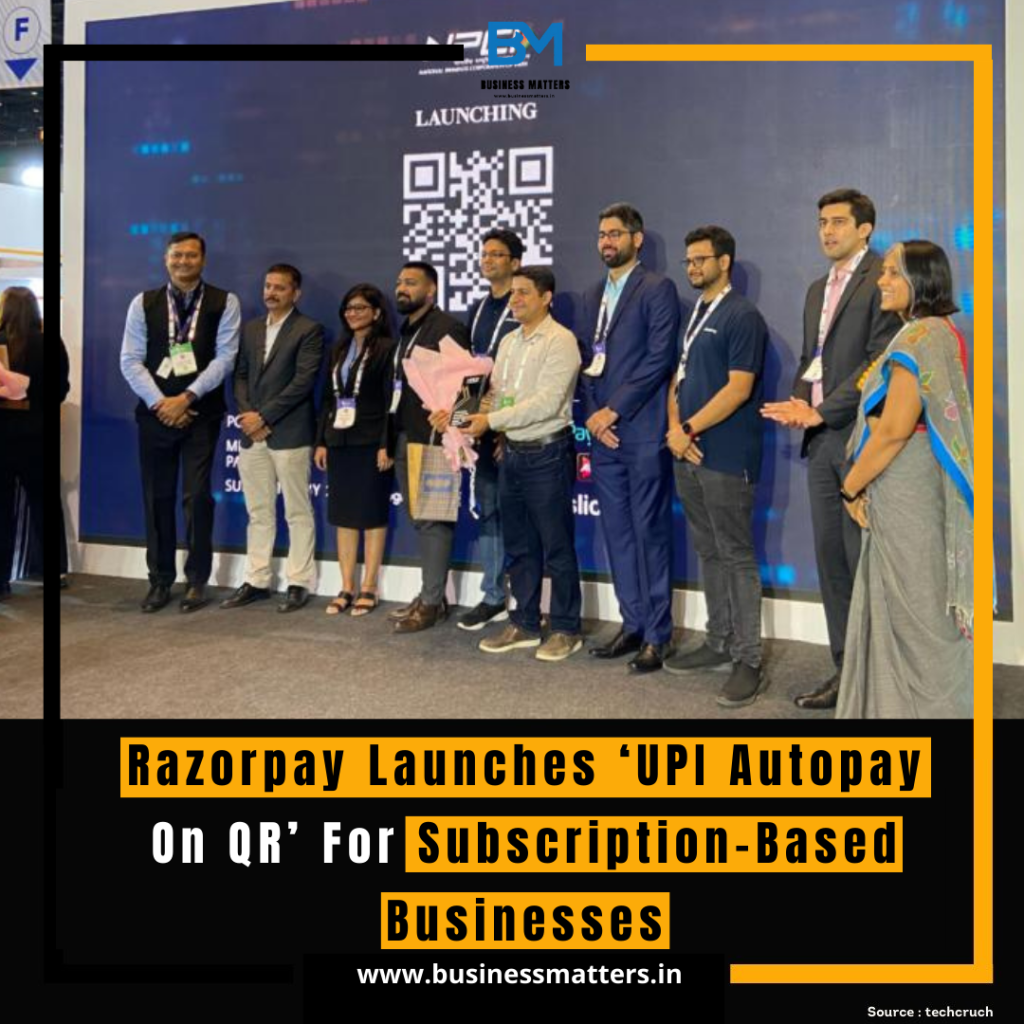
Razorpay, a leading Indian fintech company, has recently launched a groundbreaking feature called ‘UPI Autopay On QR’ targeted at subscription-based businesses. This innovative solution is poised to revolutionize the way recurring payments are collected in India, offering convenience and security to both businesses and consumers.
Subscription-based businesses, ranging from streaming services to utility bill payments, have been on the rise in India. However, collecting recurring payments in the country has always been a challenge due to various factors such as the lack of a dedicated subscription billing infrastructure and the reluctance of consumers to share sensitive card details. Razorpay’s UPI Autopay On QR aims to address these challenges head-on.
Here are the key highlights of this new feature:
- QR Code Integration: With UPI Autopay On QR, Razorpay enables businesses to generate QR codes that customers can scan using their UPI-enabled mobile apps to set up automatic payments for subscription services. This eliminates the need for customers to manually enter payment details each time a subscription fee is due.
- Seamless UPI Payments: UPI (Unified Payments Interface) has gained immense popularity in India due to its simplicity and security. Razorpay leverages UPI’s capabilities to offer a seamless payment experience to users. Once the customer scans the QR code, they can authorize the recurring payment with just a few taps on their mobile device.
- Enhanced Customer Retention: For subscription-based businesses, customer retention is crucial. By offering a frictionless payment experience through UPI Autopay On QR, businesses can reduce payment failures and improve customer satisfaction, leading to higher retention rates.
- Security and Trust: Security is a top concern for both businesses and consumers. Razorpay ensures that all payments made through this feature are highly secure, complying with the stringent regulations and security standards set by the Reserve Bank of India (RBI). This helps build trust among customers, encouraging them to use the service regularly.
- Customizable Payment Plans: Businesses can customize their subscription plans and billing frequencies, making it easy to cater to various customer preferences. This flexibility allows companies to adapt their offerings to the unique needs of their customer base.
- Compliance with UPI 2.0: Razorpay’s UPI Autopay On QR is compliant with UPI 2.0, which means it supports features like one-time mandates and recurring payments. This ensures that businesses can leverage the latest UPI capabilities to streamline their subscription billing processes.
- Integration and Analytics: The feature is designed for easy integration into existing business systems and applications. Additionally, it provides valuable analytics and insights to help businesses track payment trends, identify potential issues, and optimize their subscription models.
- Cost-Effective Solution: Compared to traditional payment methods, UPI Autopay On QR is a cost-effective solution for businesses. It eliminates the need for intermediaries and reduces payment processing fees, ultimately saving businesses money.
- User-Friendly Interface: Both businesses and consumers benefit from a user-friendly interface. Businesses can easily set up QR codes, and customers can complete payments with minimal effort, enhancing the overall user experience.
In conclusion, Razorpay’s UPI Autopay On QR is a game-changer for subscription-based businesses in India. It addresses the pain points associated with recurring payments, offering convenience, security, and flexibility. This innovation is likely to drive the growth of subscription services in the country and further accelerate the adoption of digital payments through UPI.
As the Indian fintech industry continues to evolve, it’s innovations like these that pave the way for a more digital, efficient, and customer-centric financial ecosystem. Razorpay’s commitment to simplifying payments for businesses and consumers alike positions it as a key player in India’s ongoing fintech revolution.

